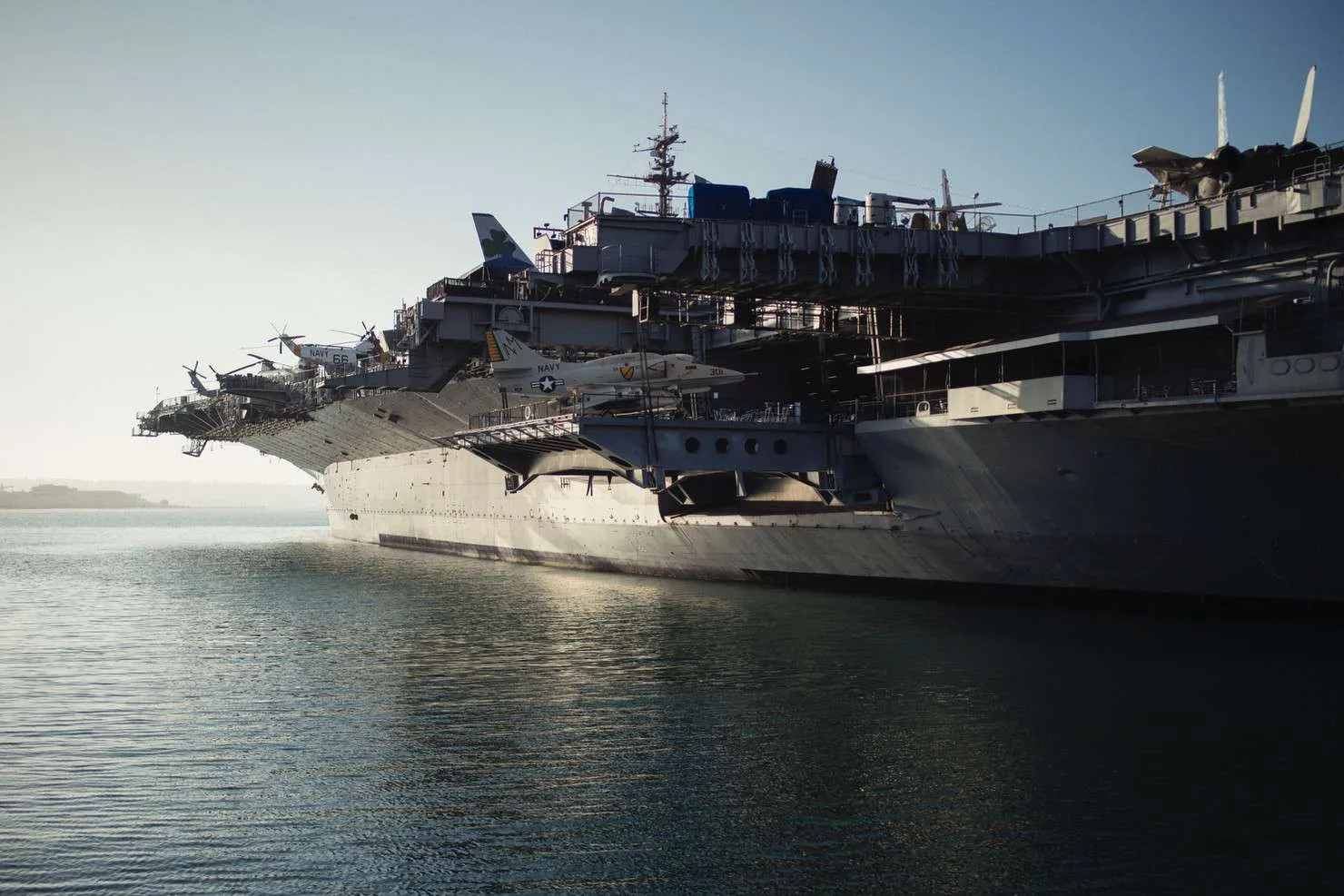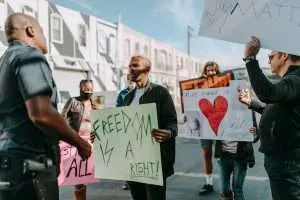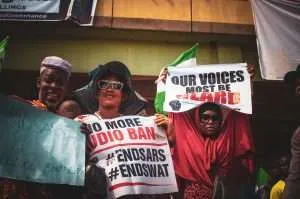I have long felt that there has been discourse missing in sociology about the connection between the US military and human trafficking.
Although human trafficking has deep historical roots, I have noticed an increase in discourse, lately. For instance, along the front range of Colorado, where I am from, an oil boom has been linked to sex trafficking. There is also the recent case of Jefferey Epstein. Again, this is an old problem that is gaining new attention.
The new attention being paid to trafficking has caused me to reflect on my experiences in the Navy. While I served in the Navy, I visited multiple brothels. The fact is, almost everyone I knew had likely been in or around a brothel. When a Naval fleet visits a port of call, many of the locations such as Busan, South Korea, have entire economies structured around serving the desires of sailors.
From the moment sailors step foot on the shores of the host country, we were met with swarms of venders selling us everything from food and souvenirs, to sex toys and weapons. There were even occasional “tour guides” that might lure you in with “a great price” then subtly offer hash or ecstasy. This environment is likely similar to cruise ship ports or other tourist destinations, either way mostly harmless. Nightlife, on the other hand, was not as harmless. Essentially, a collaboration between local officials and the US Navy funnels all of the sailors to a couple different streets lined with bars. We are told that these are the best bars in town and the best place to dance, drink, or generally party. I have no idea if those were the best bars, but I am sure authorities wanted to contain the sudden influx in “visitors.”
Nonetheless, I spent one day doing a sort of walking tour around Busan. A local man who spoke very little English spent several hours guiding us and teaching my friends and I about local life. Early evening time, we decided to go to the “bar streets” to have drinks. Evidently, we arrived earlier than expected and as we entered different bars the imagery was shocking. I recall entering one bar to find women sleeping in the restaurant booths. It was literally impossible to find a bar where we were not greeted by women. At the time we called them “buy-me-drink girls” for these women’s distinctive introductory greeting.
Now, these particular streets may be something of a “red-light district” which is obviously common, but that begs the question, as to why sailors were funneled to these locations. This was not a case of finding ourselves off the beaten path, we intentionally chose this area of town as a meeting place with other friends. Commissioned officers and enlisted sailors alike sat at long bars drinking heavily and gazing as women danced in underwear and conned massive amounts of money out of their shipmates for sex.
This experience brings me back to the term “buy-me-drink girls.” It was obvious that many of these women spoke very little English and when they would approach, they would simply ask the question, “Buy me drink?” To the sober eye, the con is clear. The women would take money for alcoholic cocktails and drink a glass of juice or soda for every alcoholic drink consumed by the sailor. Obviously, with the intention of causing the mark to become loose with their money. All the while the women will be trying to touch, kiss, or entice the sailor in any way. In the end the goal is to have a bunch of drunk sailors with open wallets. Many sailors find themselves unable to handle the alcohol after extended periods at sea and are “unable to perform,” while others will tell their dramatized stories of their “Korean Hook-up” or “the local girl who could not resist their sailor charm.”
This entire narrative is disgusting, but with a knowledge of sociology, I find myself better able to identify the actual problems.
- It is clear these women were trafficked for sex work. We knew these women were trafficked, there is really no denying it. Even at the time, we learned that some of these women were from places like Thailand and Vietnam. This is obviously denied or ignored, but there is no question these are trafficked women.
- Male-dominated organizations create a market for sex. The military is similar to the oil industry in Colorado. There is a mass amount of young men separated from women and earning a good-sized disposable income.
- Masculinity is a learned behavior. Men do not need sex in the way it is suggested in male-dominated environments. The market demand for sex exists solely because of the power dynamic associated with sex, particularly for purchase.
- These sex exchanges were pre-scripted. Every single woman was playing the same game. It was no secret that these women were trained in receiving as much money as possible for sex. This clearly indicates a larger ploy or business pulling the strings.
- Masculinity transcends social class. While my narrative points to the role that low-ranking military members play in creating a market for sex, stories such as Jefferey Epstein or the Navy’s own “Fat Leonard” scandal tell us that wealthy men also enjoy the power associated with purchasing sex.
- This is an institutional problem. The fact that sailors were directed to the neighborhoods where sex work was most prevalent suggests that the Navy accepted “sailors want prostitutes” and created the safest environment for those behaviors. Safest for the sailors, not the trafficked sex workers who are most effected by the complicit nature of America’s institutions.







